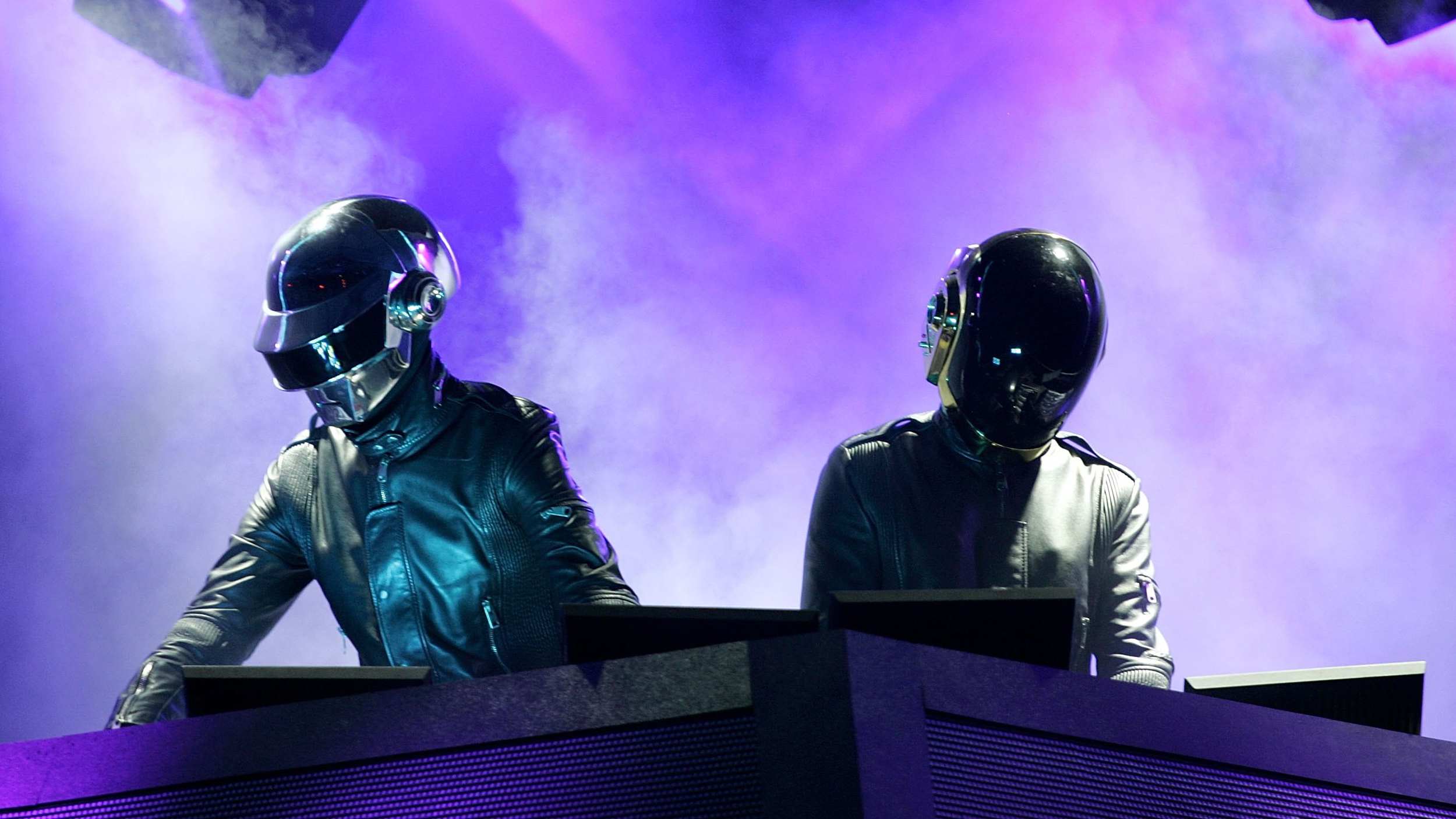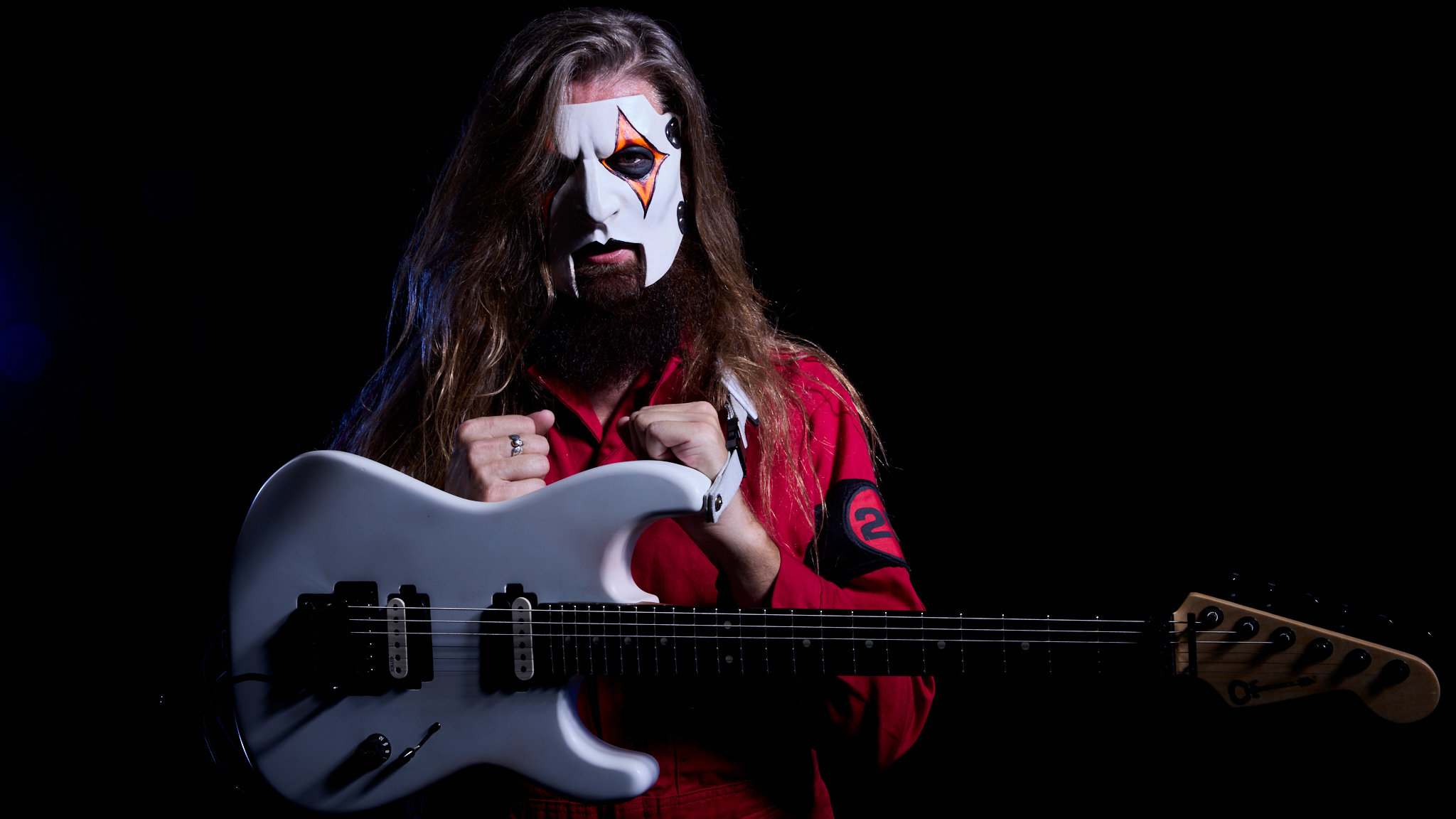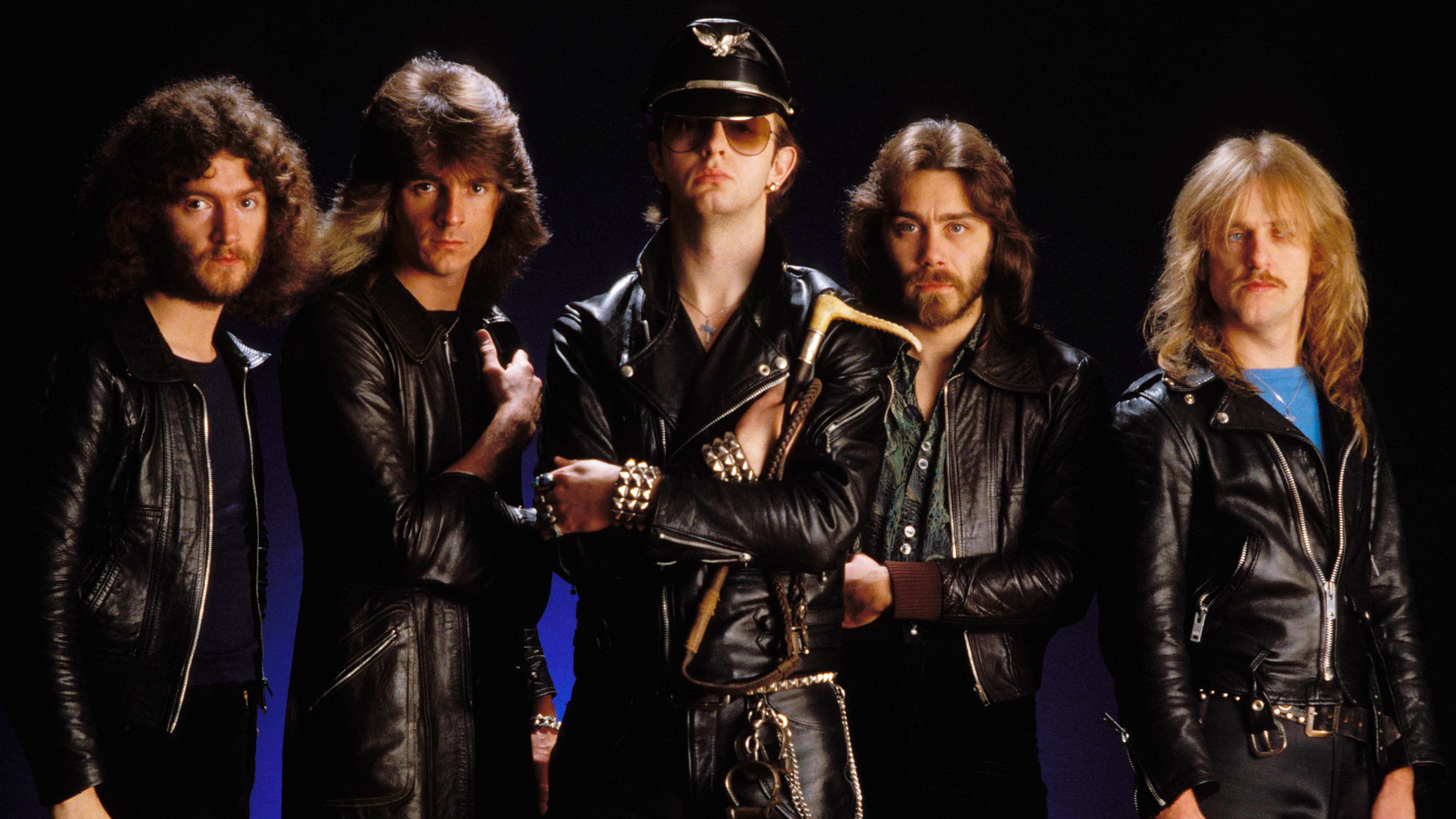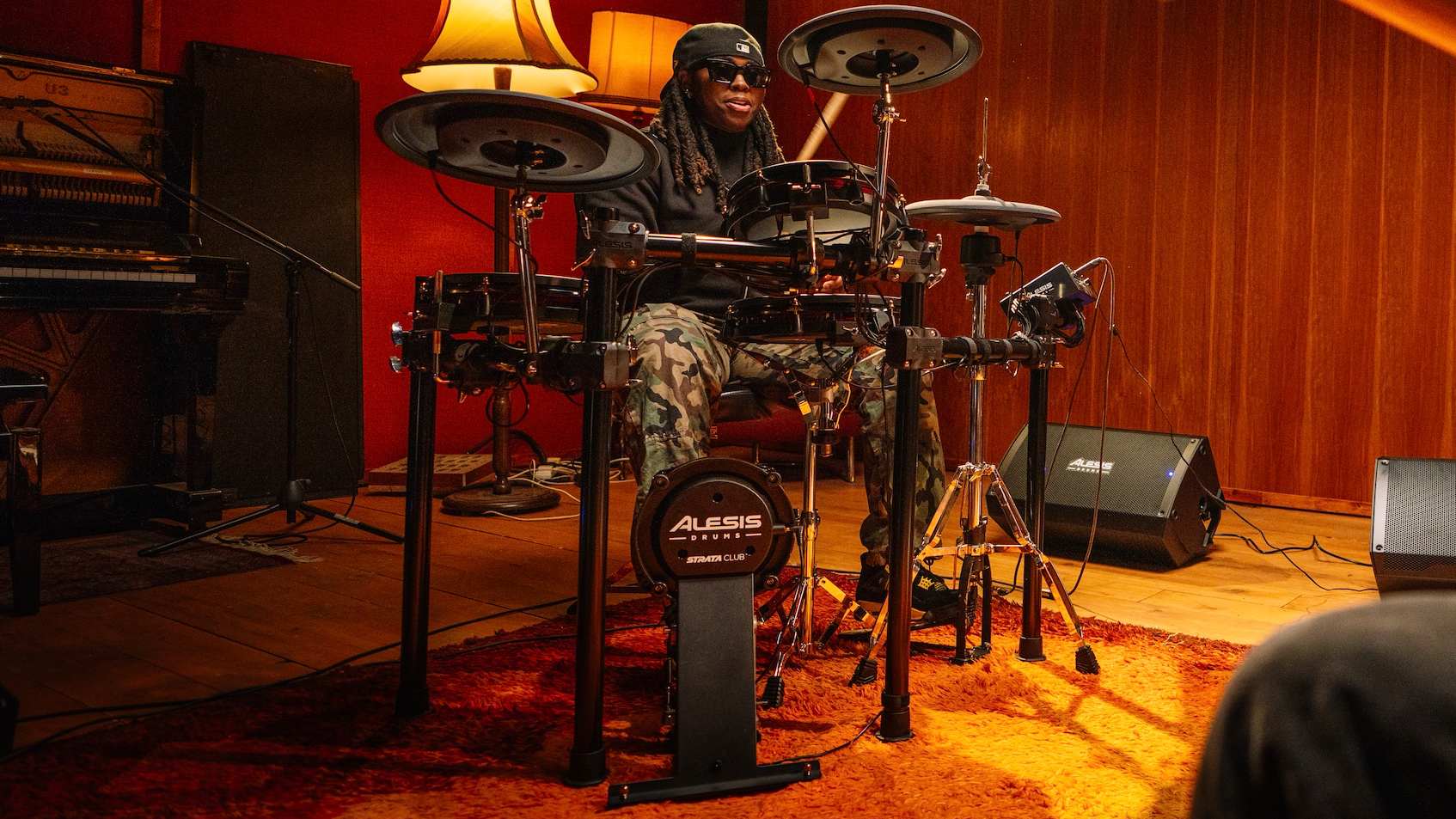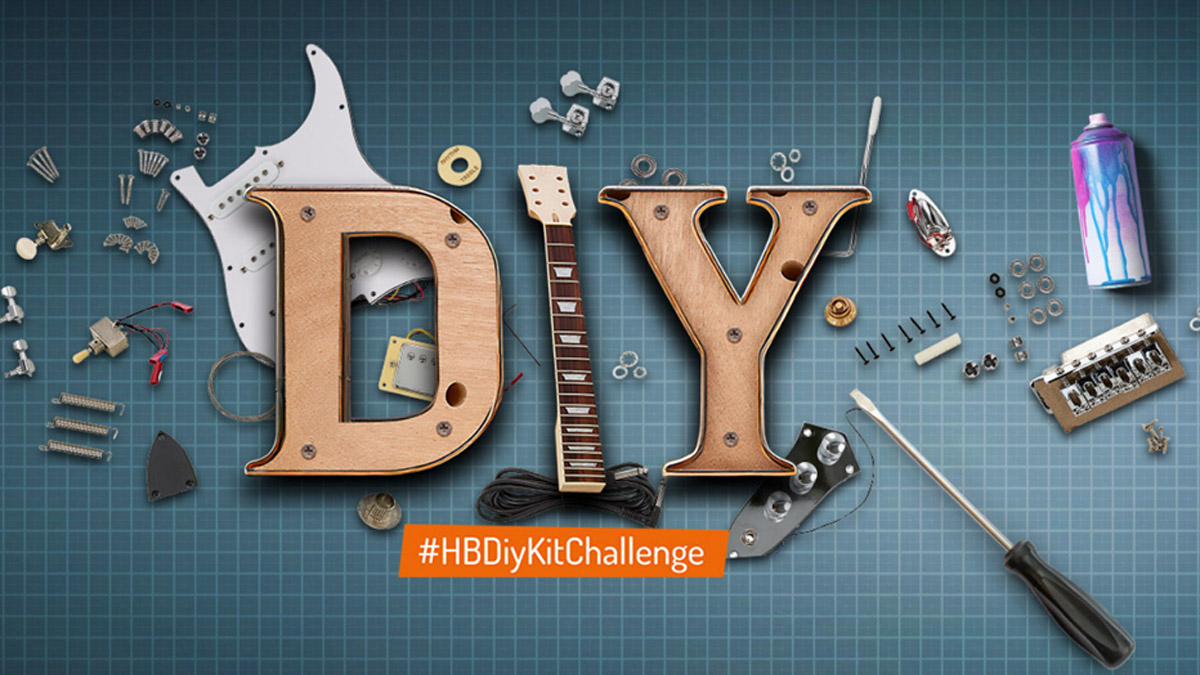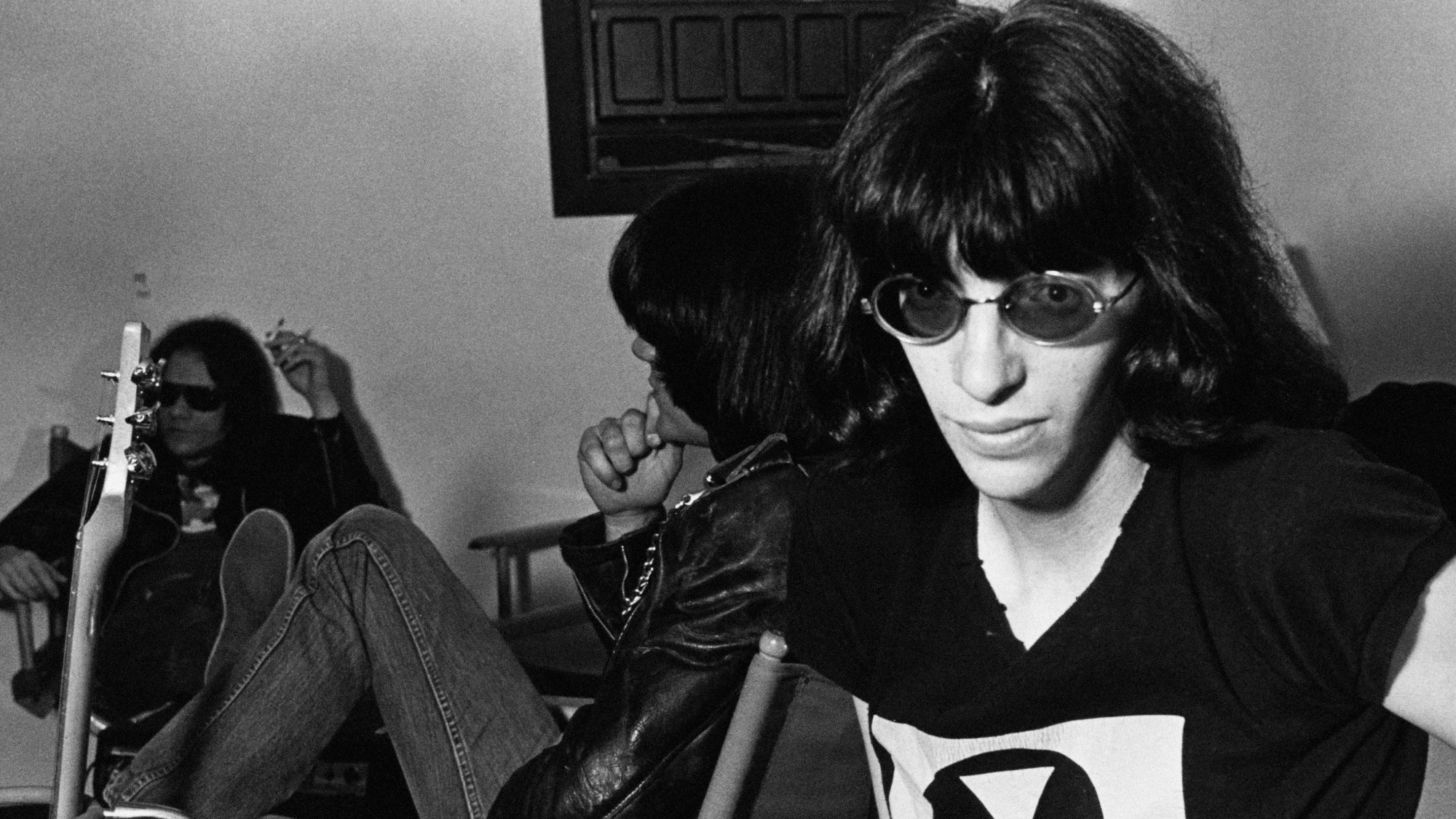Dee Jay Silver: an interview with country music's premier DJ/remixer
"I call it 'country party rock.' I mix it all together and make it one huge party."
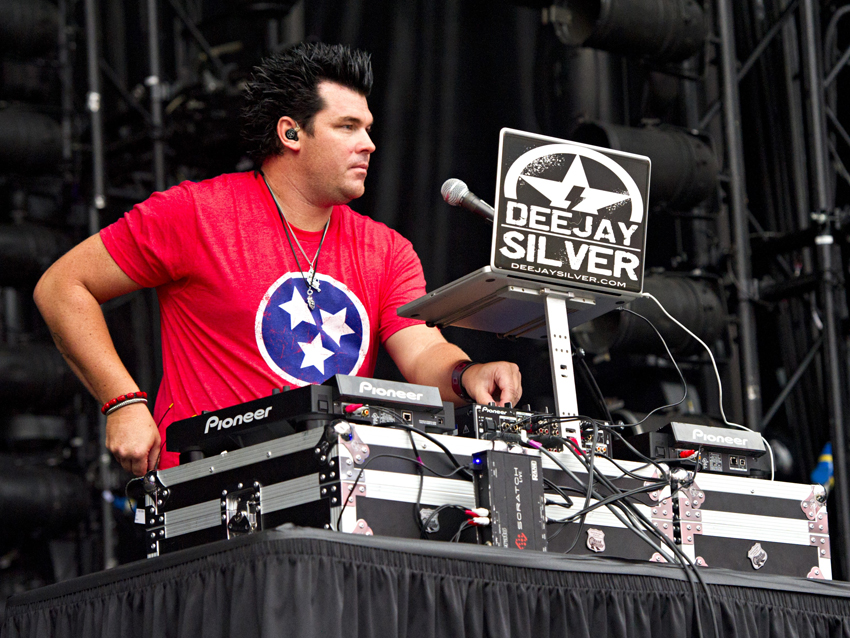
Dee Jay Silver: country music's premier DJ/remixer
Before Dee Jay Silver came along, no DJ had ever been signed by a major country record label. But that didn’t stop him from adding “record deal” to his list of professional goals.
“I’ve been told ‘no’ my whole life,” Silver explains, “and if you let people tell you ‘no,’ that’s your fault. I’m a firm believer that if you don’t speak it, if you don’t believe it, it won’t happen.”
Spoken like a true self-help guru. The thing is, Silver has actually been crossing things off his list left and right. His radio show Country Club is going into syndication. He’ll be joining Brad Paisley’s Beat This Winter Tour in February, after playing arenas, and sometimes even stadiums, with Jason Aldean for the past three years. His Country Club EP was released by Sony Nashville in 2013, in the middle of his first season as official DJ for the Tennessee Titans. All of that, along with the popularity of remixes he’s posted online, high-profile club bookings, country music award show appearances and his instantly recognizable porcupine-style ‘do, has given the Texas-to-Tennessee transplant a national presence as country’s premiere track-tweaking, bass-juicing DJ.
On a rare day at home in Nashville, while retrieving his truck from valet parking at a downtown restaurant, Silver put in a call to MusicRadar for an interview covering everything from why he was so convinced that country and programmed beats belonged together in the first place to the tools of his trade and the uphill battles, and scissor lifts, he’s confronted to get where he is.
Since there was really no such thing as a country mash-up DJ before you got started, how did you come to do what you do? The story goes that you worked the door at a club during college and became fascinated by what the DJ was doing. What happened from there?
“I just started opening the show for him, and that led to doing my own shows. It’s so funny – DJs that are on top of the world now are DJs that I’ve known for years, that kinda, like, gave me advice. Like DJ Z-Trip. I saw him when I first started DJing. I walked up to him and I was like, ‘I don’t want to be you or take anything from you. I would just like advice.’ ‘Cause he was just on some next-level kind of stuff. He told me, ‘I’m a rock guy. What are you?’ I go, ‘I’m a redneck.’ He just laughed. He was like, ‘I don’t know what you’re gonna do with that, but good luck.’
“That was probably, man, 1999. That was before DJs were like rock stars, you know? I just heard him play, and I was like, ‘Oh my god. This is phenomenal.’ Dr. Dre and mixing it in with Elton John, stuff like that. I just remember sitting there every night – and I still practice every night – just sitting in my house on a Monday night until 6 o’clock in the morning, just trying to hear a song and put a picture and words together.”
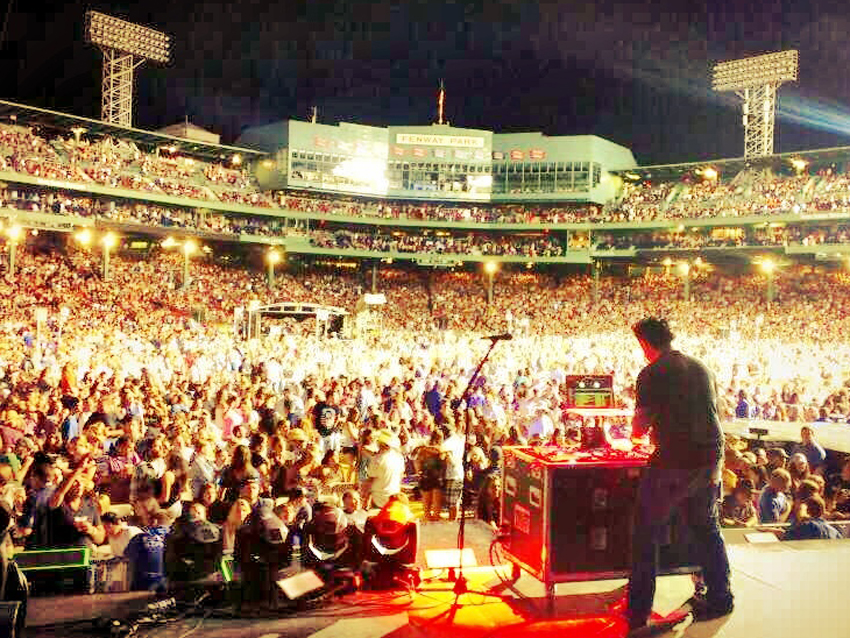
Dee Jay Silver: country music's premier DJ/remixer
Did you have any trouble selling the idea of country mixes to club promoters at the beginning?
“Oh, yeah. You still do. People are just like, ‘We don’t play country music all night.’ I’m like, ‘I don’t play anything all night, man.’ I call it 'country party rock.' I mix it all together and make it one huge party. We’ll play LMFAO. We’ll play Kid Rock. We’ll play Dr. Dre. We’ll play Li’l Wayne. We’ll play Jason Aldean. We’ll play Brad Paisley. We’ll also play Tiesto. It all goes together.”
You’ve said that nobody is truly a purist as a music listener. What did you mean by that?
“We kinda grew up in the Dr. Dre era. We all bought the album Chronic. We all bought Kid Rock’s American Bad Ass. You know what I mean?
“I was out with Aldean, and we had a little party backstage, the whole crew. A girl said, ‘Plug my iPod in.’ So Aldean comes on, Hicktown, and everybody’s singing. The next song was Blurred Lines by Robin Thicke, and the song after that was Buckcherry. That sums up country music fans right now. They came from rock ‘n’ roll. They came from hip-hop. They came from house music. They came from country roots. All they wanna do is have a good time. I always tell people I make country music not to change country music, but to [expose] people that wouldn’t give country a chance.”
You deal with digital music now, but did you start out spinning vinyl, lugging your records around?
“Oh, yeah. I paid my dues.”
How hard was it to get your hands on country vinyl?
“They didn’t really press a whole lot of country records. And if you had country, it was classic country, Hank Williams, stuff like that. Then you’d progress up to CDs. Or now I can just go out and buy it on iTunes. Or I can just call my manager or call people at Sony and say, ‘Hey, I need the [tracks] for the new Jerrod Niemann record.’ But those days sucked. Don’t get it twisted. There was no YouTube or DJ school. If you wanted to learn, you carried some cat’s records forever, hoping you’d get to play for two minutes a night.”
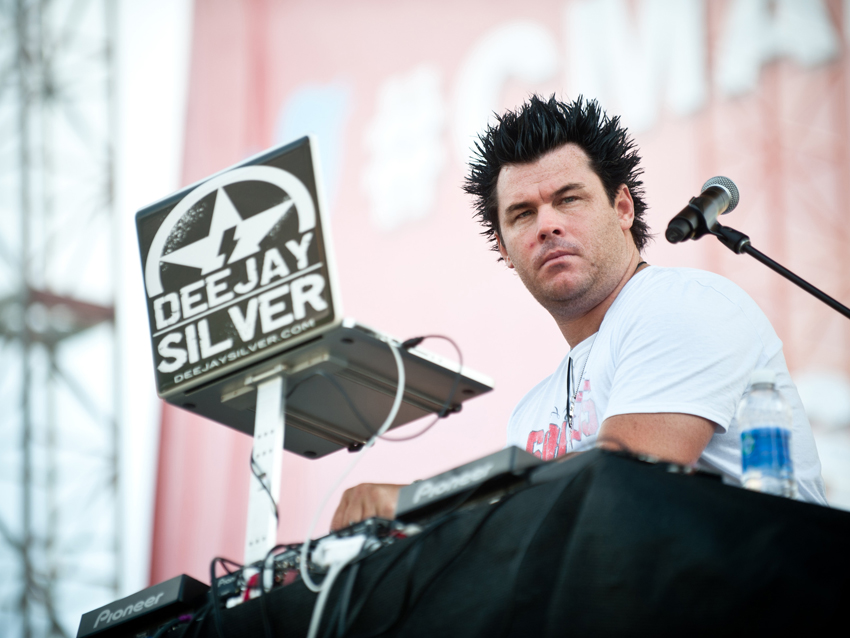
Dee Jay Silver: country music's premier DJ/remixer
When you first started posting your country mixes to Soundcloud, you didn’t have much company. But I searched Soundcloud yesterday and quickly found a dozen DJs who are uploading country mixes for free. How many others have you come across?
“I put out the first-ever country mix CD, and that was probably ten years ago. Country Club Volume One. And everyone said, ‘What are you doing?’ I just left a meeting with my manager, Ken Madson, and my Soundcloud is up to half a million plays. I mean, that’s a big number for a country remix site. I used to have to type in ‘country-space-remix,’ because there was no genre for it. I’d always call it ‘Dee Jay Silver country,’ because that’s how I hear country. And now country remix is a subgenre of Soundcloud. I see it and I just smile.
“There’s so many great producers out there. My buddy DJ Skillz on the East Coast is a phenomenal producer, and he’s getting into the country thing. I’m working a lot with him.”
If you put out your first country mix 10 years ago, that would’ve been just after Tim McGraw sang on a Nelly cut, and around the time that hip-hop influence first started showing up in country tracks like Trace Adkins’ Honky Tonk Badonkadonk and Big & Rich’s Save a Horse (Ride a Cowboy).
“I actually worked for Nelly at that time. When that song [Over And Over] came out, I was actually on tour with Nelly.”
You played his after parties, right?
“Yeah. He had a product called Pimp Juice, an energy drink. Yeah, that’s it. I’d tour around with Nelly doing his after parties.”
How did your mash-up of Jason Aldean’s She’s Country and Nelly’s Country Grammar get you your first spot on an arena tour?
“I was doing the Country Weekly fashion show… I played it, and a guy named Kevin Neal [Aldean’s booking agent] walked up to me and asked me what that was. And I said, ‘Oh, I made this.’ He was like, ‘Can I have a copy?’ He didn’t tell me anything about anything. I just put it on a flash drive and handed it to him. Fast forward a few weeks. I was told Aldean liked it. That’s awesome. Fast forward a few more weeks. I was playing at the Country Awards in Las Vegas at the Tabu night club when he and Kevin came in, and he came up and asked me to go on tour with him. Two weeks later, I had my 2010 schedule.”
After nightclubs, what was it like playing those first shows in front of a country arena audience?
“I remember it like it was yesterday. We were in Little Rock, Arkansas. They put me on a scissor lift in the middle of the venue. Listen, I’m from south Texas. Have you seen my hair? I’ve never been on a scissor lift. They just pulled the trigger back and shot me up, like, 30 feet in the air. I had no monitor, no ears. The delay was terrible. The crowd didn’t know what to think of me. I came down off that thing and leaned over [to Aldean’s tour manager] and I’m like, ‘Dude, I love this opportunity, and I appreciate this. But if this is what I’ve gotta do every night, I’m going back to Texas.’ It wasn’t like a scissor lift that they paint big buildings with. This was a scissor lift that was swaying side to side if I moved my leg.”
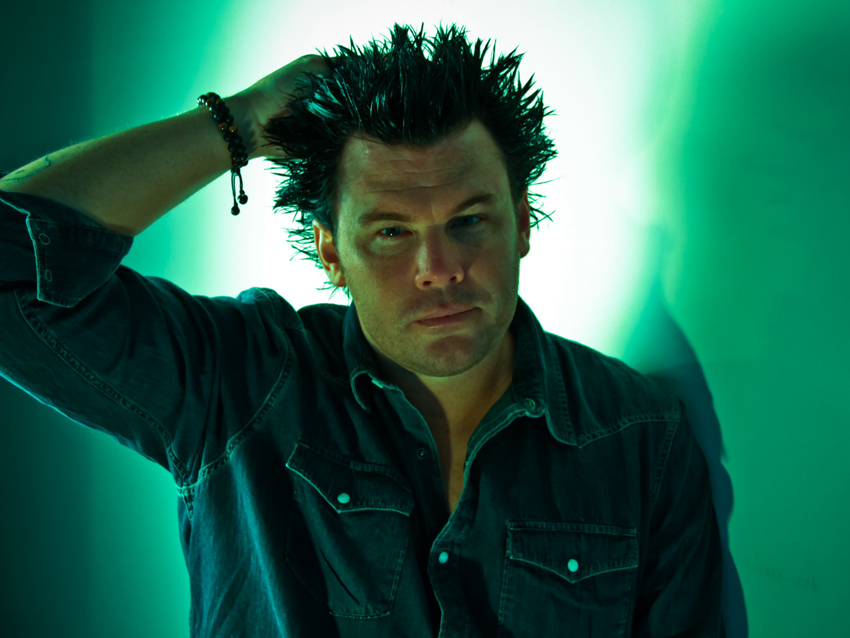
Dee Jay Silver: country music's premier DJ/remixer
I’ve seen several YouTube videos of you playing that tour in your post-scissor lift phase. In between most tracks, you talk and try to get the crowd into it. Is that something you worked into your performances when you started playing stadiums?
“That’s just who I am. And that was the thing with Jason. I came up to him and said, ‘Anything you do or don’t want me playing?’ He goes, ‘I want you to be you. That’s why you’re out here.’ He gave me a microphone.”
You can’t really point to somebody who came along doing exactly what you’re doing before you, but do you have any influences from the electronic field?
“Yeah. Z-Trip’s the perfect example. This guy’s played Coachella. He’s played Burning Man. He is, like, the original rock star DJ, who I’ve become very good friends with, like DJ Skribble and DJ Vice. Skribble, man, he was on MTV before anybody knew what a DJ was.”
The Country Club EP you put out last year has a mash-up of Carrie Underwood’s Two Black Cadillacs and Dolly Parton’s Jolene on it. Another mix I found on Soundcloud has both Nancy Sinatra’s These Boots and Eric Church’s These Boots. And we’ve already mentioned your mash-up of She’s Country and Country Grammar. In each of those cases, the songs have similar lyric hooks or themes – confronting cheaters, for instance. What do you look for in tracks that you’re going to pair up?
“I mean, honestly I’ll hear a track and I’m like, ‘This needs to go together.’ Like Pontoon by Little Big Town. I mixed it with Juvenile’s Back That Ass Up. This original song [Pontoon] was like, ‘Back this hitch into the water.’ All I heard was, ‘Back this bitch onto the water.’ You know what I mean? It just works, for whatever reason. It’s not forced. The songs were made to go together.
“I don’t want to be just some guy playing somebody else’s tracks. I want to [apply] some influence and let people know that I did a little to [the tracks] to make it a little somethin’ somethin’ for ya.”
Do artists approach you about producing remixes of their songs these days?
“Yeah. I’m friends with a lot of these people. You know, I can very easily make a two-track mix of something. But I want to make it right, I want to make it the best I can, so I would like to have their files [to work with].”
How do royalties work when you’re selling an EP as opposed to posting a country mix for free download online?
“ I’ll put it this way: I don’t make any money off of it. It’s just basically like them selling a record. That’s the same as them selling a single; they’re making all the profits off it. I’ll get, like, the producer royalty or something – I heard.”
Theoretically.
[Laughs] “Theoretically, somebody’s got some producer royalties. But yeah, they still get paid – the writers, the original producers. I mean, the pie is cut up. After getting to know these people being in this industry, I stopped any free downloading period. If you ever see a mix of mine that’s a remix – Chris Young’s Aw Naw, for example – if you click on ‘buy this track’ on Soundcloud, it takes you to Chris’s album.”
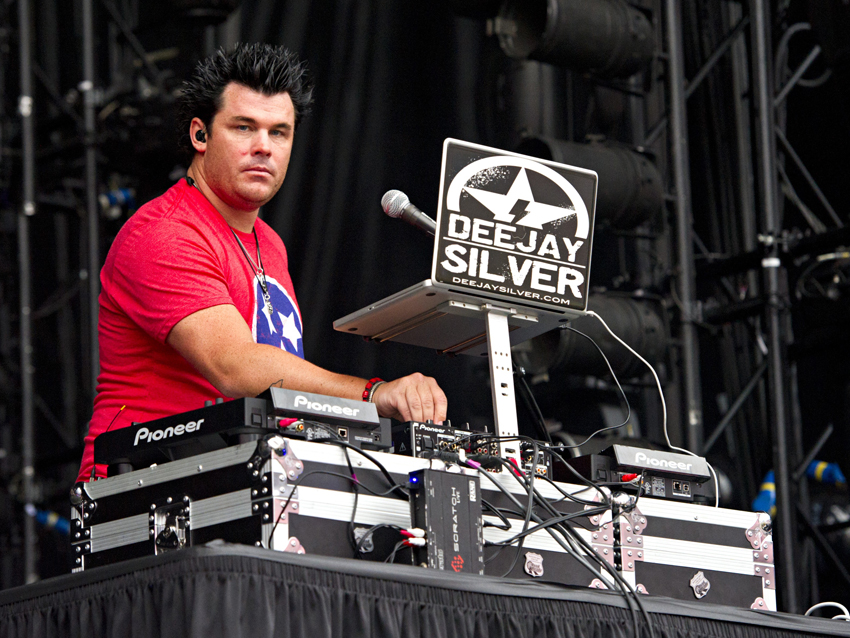
Dee Jay Silver: country music's premier DJ/remixer
You call yourself an 808 freak. That drum machine has been a favorite in hip-hop since the ‘80s.What do you like about it?
“I mean, you can feel it. The bass, to me, is music. You’ve gotta have the fiddles you’ve gotta have keyboards, you’ve gotta have guitar. When you hear it on the radio, it’s melodically perfect, but for lack of a better word, there’s no balls to it. And that’s part of it. You’ve got to feel the music.
“We were out with Brad Paisley and made a new intro for his song Alcohol. The bass hit so hard you could literally see people’s hair moving. I was like, ‘That’s how it’s supposed to be done.’”
What other gear, software applications and hardware do you work with?
“I do everything on Ableton when I’m on the road. Of course, we use Pro-Tools when I get back. And I use Serato to DJ with live. So we mix it all live up there on stage.”
Did it take a while to figure out what worked for you?
“Every time we get up there, something’s different, you know? Anybody tells you they’ve got it figured out – I mean, you either [need to] write a book or you’re a liar. Ableton and Serato, for example, I use it daily, and every time I turn it on, there’s a new something being added. It’s just like playing the guitar. Brad Paisley, he’s one of the best guitar players I’ve ever seen. He literally soundchecks for two hours a day, just playing with his guitar. If you’re not learning, you’re falling behind.”
Elsewhere in the electronic music landscape, artists like Avicii and Pitbull have been incorporating folk-rock instrumentation, bluegrass singers, square dance calls and country harmonica. What does that say to you about where country and club music are headed?
“The people that listen to Avicii have probably never played a Johnny Cash record in their entire life. You know what I mean? You don’t have to just have a lonely dude picking guitar to play country. Avicii doing something like that does nothing but open more doors for anybody that wants to stick their neck out there and try something.”
Are you in a position now where aspiring DJs are approaching you for advice?
“Yeah, I get a lot of e-mails on Facebook and Soundcloud asking me what DJ equipment they should use. Or ‘Check out my mix.’ Or ‘I want to start being a DJ because I saw you in Washington.’ That is an absolute honor. My best is advice is just believe in yourself and do what you want to do.
“What’s the worst-case [scenario]? Somebody doesn’t like it? I mean, no matter what you do in this world, somebody’s gonna hate it. If you’re a 55 or 60-year old country purist that does not listen to anything but Hank Jr., you’re gonna hate me. You’ll think I’m ruining country music. But the people that listen to more than just country get it, and that’s my target audience. And you’ve gotta know your audience.”
“I’m looking forward to breaking it in on stage”: Mustard will be headlining at Coachella tonight with a very exclusive Native Instruments Maschine MK3, and there’s custom yellow Kontrol S49 MIDI keyboard, too
“Turns out they weigh more than I thought... #tornthisway”: Mark Ronson injures himself trying to move a stage monitor
“I’m looking forward to breaking it in on stage”: Mustard will be headlining at Coachella tonight with a very exclusive Native Instruments Maschine MK3, and there’s custom yellow Kontrol S49 MIDI keyboard, too
“Turns out they weigh more than I thought... #tornthisway”: Mark Ronson injures himself trying to move a stage monitor
